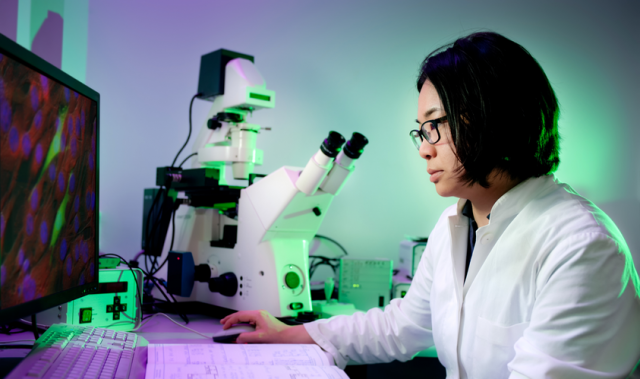
AsianScientist (Apr. 27, 2018) – In a study published in Aging Cell, researchers in China have shown that the diabetes drug metformin can extend the lifespan of human cells in vitro.
Metformin is an FDA-approved drug that has been used for over 60 years to treat type 2 diabetes. In recent years, metformin has been shown to extend the lifespan in some animal models. However, whether metformin can suppress human cellular aging and the mechanisms underlying its probable effects in humans remain unclear.
In the present study, a team of researchers led by Professors Wang Chihchen and Liu Guanghui at the Institute of Biophysics of Chinese Academy of Sciences (CAS) found that chronic low-dose metformin treatment delays aging in human cells, specifically diploid fibroblasts and mesenchymal stem cells.
Previous research by the same group showed that a protein called endoplasmic reticulum-localized glutathione peroxidase 7 (GPx7) is a key enzyme involved in regulating protein folding and maintaining redox homeostasis. The researchers found that low-dose metformin treatment upregulates the expression of endoplasmic reticulum-localized GPx7 by activating a transcription factor called Nrf2.
The levels of GPx7 decrease as cells age and knocking down GPx7 accelerated the process of aging, the researchers said. Interestingly, the metformin-Nrf2-GPx7 axis is known to be involved in worm aging and the worm ortholog of human GPx7 is required for the positive effects of metformin on life span extension in worms.
Taken together, these results highlight the importance of the Nrf2-GPx7 pathway in pro-longevity signaling and provide further evidence that metformin is likely to have a beneficial effect on human aging.
The article can be found at: Fang et al. (2018) Metformin Alleviates Human Cellular Aging by Upregulating the Endoplasmic Reticulum Glutathione Peroxidase 7.
———
Source: Chinese Academy of Sciences; Photo: Shutterstock.
Disclaimer: This article does not necessarily reflect the views of AsianScientist or its staff.












